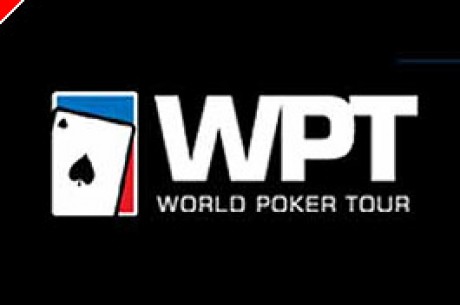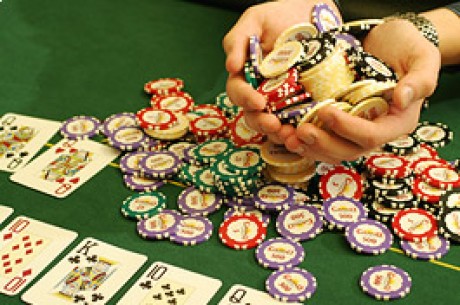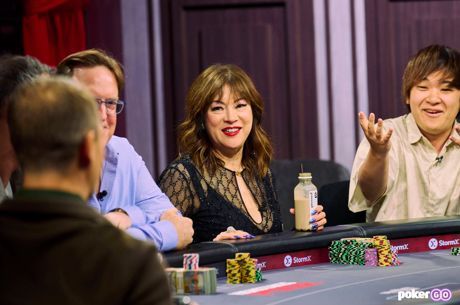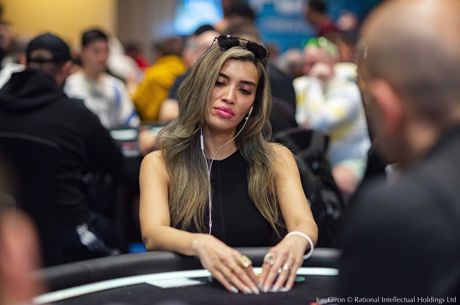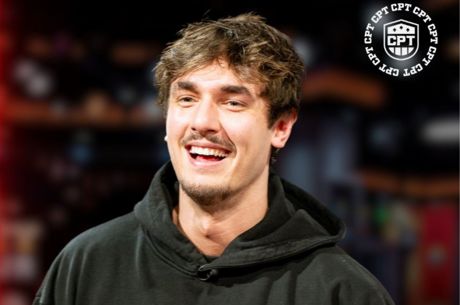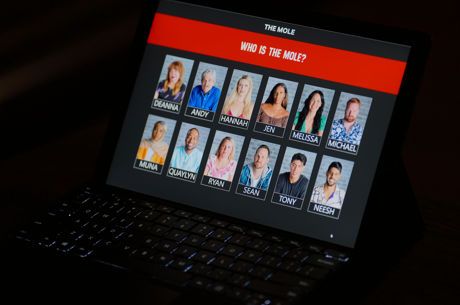New TV Programs Look Beyond Tournament Poker
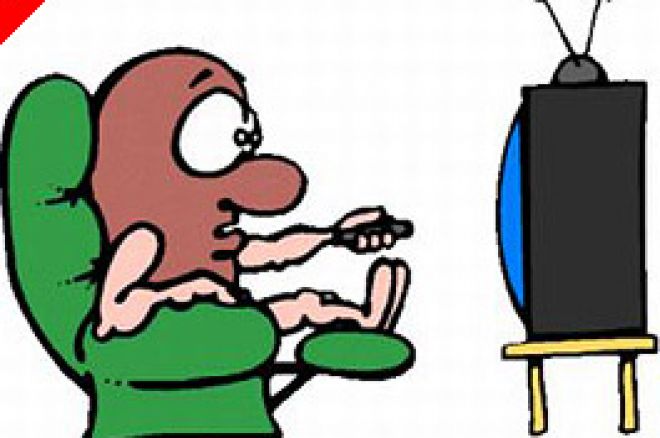
Tournament poker has long dominated the television landscape in America. While ratings have been strong for the multitude of broadcasts there are, it also indicates that there is a desire by the viewing public that they would like to see more than just that. Two new programs that have come on in the United States are attempting to satiate that desire and both, while they have some drawbacks, do an excellent job overall.
They have entered into the battlefield of television almost simultaneously, so people may have overlooked one or the other. Both "High Stakes Poker" on GSN (formerly known as the Game Show Network) and "King Of Vegas" on SpikeTV are taking the approach that viewers want to see more than just the final stages of a poker tournament. They are both expanding the possibilities for the viewers by offering non-traditional poker and gaming programming and both look to be a success thus far.
"High Stakes Poker" (Mondays at 10PM Eastern Time, with frequent reruns) deviates from the tournament poker format by offering a look into what it takes to play with the "big boys" (and girl, as Jennifer Harman is a part of the action as well). It is set for a thirteen week run that delves into the ring game (or "cash game") format, where each player comes in with their own cash (it was a minimum of $100,000 to get in the game) and competes against the other players for their hard earned money. Pots easily bypass the $10,000 mark during the No-Limit contest and it is not uncommon to see wrapped bricks of $50,000 entering into the pot throughout the show.
The action so far on "High Stakes Poker" shows just what it takes to compete in this rarified air. In tournament poker, it is a good strategy to sit back and wait for powerful hands to go to war with. In a cash game, however, you don't have that luxury. You sometimes have to strike with what is, in most cases, less than the best and actually play poker, which the participants readily do. It leads to some excellent poker by some of the greatest names in the game.
Players such as Doyle Brunson, Daniel Negreanu, Barry Greenstein and Harman have been featured in the early action and other players such as Johnny Chan, Phil Hellmuth and Todd Brunson (a longtime cash game veteran) will be featured in later programs. There are some excellent "amateur" players stepping to the felt, with Los Angeles Lakers owner Jerry Buss and Dr. Amir Nasseri entering into the fray as well. This combination lends for some great poker action and very well done commentary by the underrated Gabe Kaplan.
Kaplan, a highly experienced tournament and cash game player in his own right, is probably one of the most underrated color commentators for poker broadcasts. Many only look at him from his days as the star of the 70's sitcom "Welcome Back, Kotter" and do not realize that he has an outstanding grasp of the game in his own right. Because he has played against many of the players featured on the program, Kaplan offers some great insight into their minds and, more often than not, is able to pick up on their plays and predict the actions of those at the tables. His style is understated and looks at the game from a players' standpoint, adding a tremendous amount of poker knowledge to the game.
The host, actor A. J. Benza, could have been left off the program. He calls the action adequately but lacks the credibility that has been associated with past GSN productions. The poker, however, is what takes center stage, so perhaps it isn't relative that the host is an unknown poker commodity.
The poker played in "High Stakes Poker" is excellent. You can see the thought that goes into each hand with the players involved and actually get a feel for playing in a game at that level. With that said, however, the show does lack the heart-stopping drama that many have come to associate with the game from its tournament background. There are few "all in" plays and the masterful players actually play poker, which leads to some very fascinating confrontations. Overall, "High Stakes Poker" does an excellent job of showing how poker should be played and is a pleasant departure from the tournament format.
"King Of Vegas" (Tuesdays at 10PM Eastern Time) takes a different approach and isn't entirely poker related. It is a reality show that takes twelve of the best from different gaming backgrounds and thrusts them into a "Battle Royal" where one is eliminated each week. Nine different casino games are played over the ten week run of the program to determine who is eliminated, with the final player standing taking down the crown as "King Of Vegas" and a $1 million payday.
While the show itself isn't a strictly poker production, three great players from the poker world are taking part in it. Professionals Mike "The Mouth" Matusow, David Williams and Evelyn Ng step up against the best professionals from the blackjack world (represented by "Hollywood" Dave Stann and Ken Einiger) as well as a very dangerous assortment of amateur players. With such volatile personalities, especially Matusow and Stann, it has led to some very aggressive "trash talking" and interaction between the players involved.
That has somewhat overshadowed what is a great concept. To be the best gambler in Las Vegas, you have to be proficient at all the games, rather than just a particular specialty such as poker or blackjack. The show does an excellent job of presenting the competition between the players as they adjust to the different and sometimes unfamiliar games they are entering into.
The hosts are very well chosen for the program. Former ESPN boxing analyst and commentator Max Kellerman calls the action very well and explains the games in play with a startlingly accurate knowledge of each game. Oddsmaker Extraordinaire Wayne Allyn Root provides in-depth knowledge of the players and critiques what is making them win (or, in some cases, lose). The two gentlemen work well together and keep the viewer constantly informed as to the action at the tables.
There are a couple of downsides to the show. With the show length of an hour, there isn't a tremendous amount of action shown. With each segment, perhaps only four to five rounds of play are shown, so you don't get a real feel for the ebb and flow of what it took for the competitors to reach the situations they find themselves in. This, though, is to be expected. There was probably several hours of tape for the program but, because of the time limitations, you have to sometimes sacrifice the timeline of how everything actually happened.
The other downside is actually getting to know some of the players. While everyone may recognize people such as Matusow or Stann, the background of some of the others are left a mystery to the viewer. Once again, however, this comes back to the point that there is only an hour in the program. Thus, it is difficult to squeeze in the "personality segments" that would add much to the players and the program. I, myself, would like to see "King Of Vegas" expanded to two hours. With the extra time, the situations that I mentioned above could be cured and people could really get drawn into the show.
The action has been heated and the competition has been excellent, with some surprises already. Matusow has shown he takes more risks than anyone else as he is ready to charge into battle from the start. Evelyn Ng and David Williams have shown a gaming competence that many may not realize they had. I expect to see one of these three capture the title. Overall, "King Of Vegas" is well worth the hour of television viewing spent.
So if you are looking for something outside the normal poker tournament, check out "High Stakes Poker" and "King Of Vegas". Both are entertaining and well-done productions and should help to pass a winter's night.
Ed Note: Spend a cold winter's night being hot at the tables at Everest Poker

